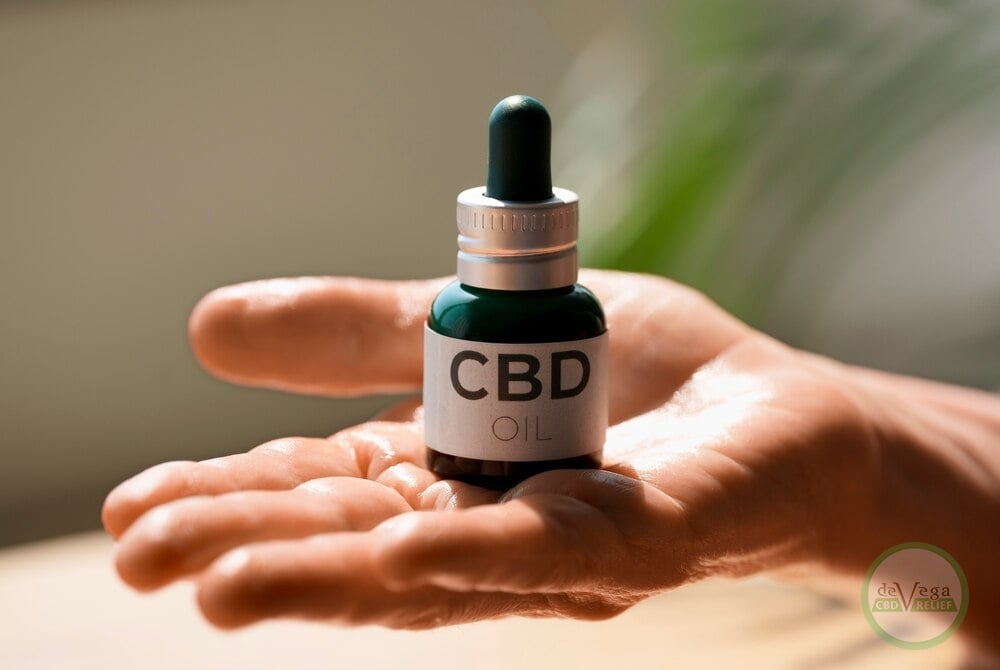Chronic pain affects millions globally, and many seek alternatives to traditional pain relief. CBD (cannabidiol), derived from the hemp plant, has emerged as a promising option, supported by growing research. Here, we’ll dive into how CBD works for pain relief and what the science says.
Understanding How CBD Works for Pain
CBD interacts with the body’s endocannabinoid system (ECS), a network responsible for maintaining balance in various functions like pain perception, mood, and inflammation. The ECS consists of CB1 and CB2 receptors, and CBD indirectly influences these receptors. While CB1 receptors are mostly in the brain, involved in regulating pain and mood, CB2 receptors are found in the immune system and peripheral organs. By influencing CB2 receptors, CBD can help reduce inflammation, a key contributor to chronic pain.
Moreover, CBD’s ability to reduce glial cell activity—which can amplify pain—suggests it may be effective in alleviating various types of pain, from inflammatory pain to neuropathic pain.
Research-Backed Evidence for CBD and Pain Relief


CBD for Arthritis and Inflammatory Pain
A 2016 study found that applying topical CBD reduced inflammation and pain in rats with arthritis, without any noticeable side effects. This research laid the groundwork for human trials, showing that CBD’s anti-inflammatory properties could be valuable for people suffering from arthritis or joint pain. The study highlighted that CBD could help reduce both pain perception and underlying inflammation, which is a key contributor to chronic pain.
CBD for Neuropathic Pain
Another study in 2021, featured in Frontiers in Pharmacology, evaluated CBD’s effects on neuropathic pain—pain caused by nerve damage, often seen in conditions like multiple sclerosis or diabetic neuropathy. The findings were promising, showing that CBD may inhibit pain transmission in nerves and provide relief without causing side effects like addiction or tolerance, often associated with opioids or other prescription medications.
CBD for Fibromyalgia
People with fibromyalgia often experience widespread pain. A 2023 study demonstrated that CBD use led to significant improvements in pain levels and quality of life in fibromyalgia patients. This study suggests that CBD could help those with fibromyalgia manage symptoms that are otherwise difficult to treat with conventional medications.
CBD for Cancer-Related Pain
Chronic pain is a common side effect of cancer treatments, such as chemotherapy. A review in 2024 analyzed several trials of CBD in cancer-related pain management. It found that combining CBD with THC (tetrahydrocannabinol) led to improved pain relief in cancer patients who were not responding well to opioids. While the combination of THC and CBD may be more effective for some, pure CBD has still been shown to alleviate moderate pain and discomfort.


Different Forms of CBD for Pain Relief
CBD is available in various forms, each suited to different types of pain. Some of the most common CBD products are:
- Edibles: CBD-infused edibles like cbd gummies can be a convenient and enjoyable way to manage chronic pain, though they take longer to work.
- Topicals: CBD topicals and balms are applied directly to the skin and are ideal for localized pain, such as joint pain or arthritis.
- Tinctures: CBD oil tinctures taken sublingually offer fast absorption and are useful for more generalized pain relief.
- Capsules: Pre-dosed CBD capsules can offer sustained pain relief throughout the day.
Dosage and Safety Considerations
Finding the right CBD dosage for pain can be tricky, as it varies based on the type and severity of the pain, as well as individual body chemistry. Starting with a low dose and gradually increasing it is the best approach. A typical starting dose for chronic pain ranges from 10 mg to 25 mg per day, but some people may require higher amounts for severe pain. It’s important to consult with a healthcare provider before starting CBD, especially if you are taking other medications.
Research indicates that CBD is generally well-tolerated, with mild side effects such as drowsiness or dry mouth reported in some cases. Unlike opioids, CBD is not addictive and doesn’t lead to tolerance, making it a safer long-term option for managing chronic pain.
How CBD can help alleviate chronic pain – Conclusion
CBD offers a natural, well-tolerated alternative to traditional pain medications for those suffering from chronic pain. Whether through topicals, oils, or edibles, CBD’s ability to reduce inflammation, modulate pain perception, and enhance overall well-being is backed by increasing scientific evidence. However, as with any supplement, it’s important to choose high-quality CBD products and consult with a healthcare professional for personalized advice.
For those seeking relief from arthritis, neuropathic pain, or other chronic conditions, Devega CBD Relief can offer a natural and effective solution, paving the way for a pain-free future without relying on harmful medications.



